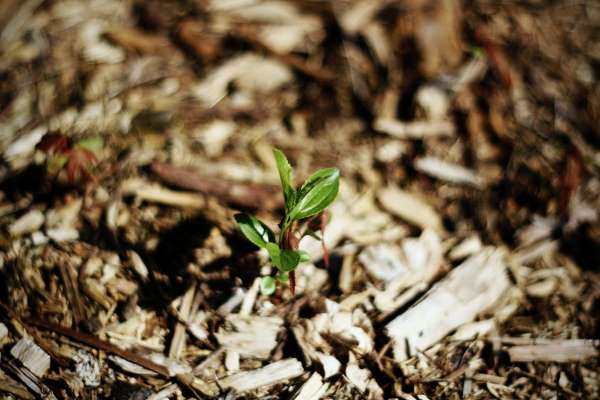Mulching is far from a new practice, but its benefits are easy to overlook. While to some, applying another layer of material to the ground before growing crops may seem like an unnecessary extra step, mulching has many advantages.
Many people are familiar with mulch’s use as a natural fertilizer, but its uses go deeper than that. Here are five less well-known environmental benefits of mulching in agriculture.
1. Reduced Greenhouse Gas Emissions
Using mulch made from organic waste can reduce greenhouse gas (GHG) emissions. Food and yard waste often ends up in landfills, where it rots and emits methane gas. This waste is the third-largest source of methane emissions in the U.S. – causing significant environmental damage – but organic mulch provides an alternative.
Turning this waste into mulch through composting and similar processes prevents organic material from going to landfills. Consequently, as farms use more organic mulch, the increased demand will lead more of this waste to go towards mulch and away from landfills, reducing emissions in the process.
2. Better Water Management
Mulching can also help farms decrease their water consumption. Mulch can retain excess moisture and helps bind the loose soil around it, preventing leakage and improving water retention. These characteristics mean farms lose less water when irrigating plants, requiring less water to care for the same amount of crops.
This improved water management will reduce operating costs, but it also protects the environment. Traditionally, agriculture accounts for a significant portion of global freshwater withdrawals, contributing to water scarcity. Reducing this consumption through mulching helps ensure other ecosystems can get the water they need.
3. Invasive Species Suppression
Another benefit of mulching is mulch’s ability to protect plants from weeds and other unwanted growth. Using a drum mulcher on farmland mitigates the spread of invasive species by cutting them down to create better growing conditions. Since mulch prevents unwanted seeds from permeating the soil deep enough, it also prevents weed growth.
Suppressing invasive species like this ensures native plants can grow healthily. Farms can then create more natural, thriving ecosystems instead of degrading the surrounding area by cultivating invasive plants.
4. Erosion Prevention
Mulching can also prevent soil erosion. Organic mulches improve soil nutrition as they decay, leading to stronger root systems in the plants that grow in them. These roots help keep the soil together, preventing erosion when it rains.
As mulch strengthens the soil, it stops it from splashing during rain or irrigation, too. All of these erosion-prevention advantages ensure the ground remains fertile for longer and keeps fertilizers on the farm. Less erosion means less fertilizer trailing off into natural waterways, preventing diseases and harm to other environments.
5. Heavy Metals Removal
Farms can also use mulch to reduce heavy metals in their surrounding environments. Mulches made from plants, like pine and poplar, can remove heavy metals from the soil. Similarly, wood chips can convert copper into a form that isn’t toxic to plants.
Mitigating heavy metals in the soil will promote more plant growth, and these plants will grow healthier, too. As a result, farms can produce more with fewer resources, reducing their overall impact on the environment. Taking heavy metals out of the ecosystem will also improve the health of any animals, including humans, that consume these plants.
Mulching Has Many Advantages for Agriculture
Mulch may not seem like much on the surface, but its environmental benefits are impressive. In addition to fertilizing the soil, mulching can help farms become more resource-efficient, resilient, and overall sustainable places.
Mulching is not the only step farms should take to improve their sustainability, but it is an important one. As more agricultural businesses look to reduce their ecological footprint, they should consider how mulch can help them reach their goals.
Bio: Jane is an agriculture and environmental journalist and the founder and editor-in-chief of Environment.co, where she covers sustainability and eco-friendly living.
Jane is an agriculture and environmental journalist and the founder and editor-in-chief of Environment.co, where she covers sustainability and eco-friendly living.



 Jane is an agriculture and environmental journalist and the founder and editor-in-chief of
Jane is an agriculture and environmental journalist and the founder and editor-in-chief of 



